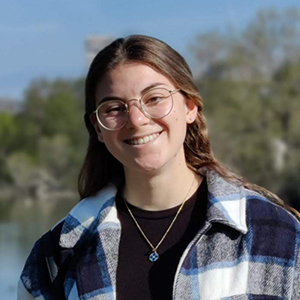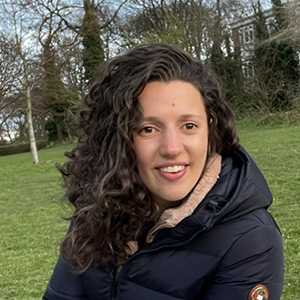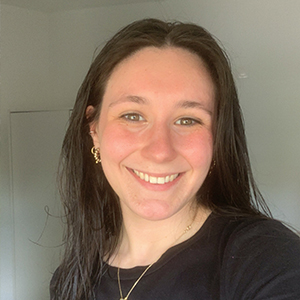Sports kinesiology injury prevention and performance
Successful sport outcomes depend on the ability of the human body to move effectively, efficiently and safely. Using the scientific study of movement, we investigate new methods for optimising human motion to reduce the risks of injury and improve sports performance of athletes of all ages and abilities.
The Repercussion Group: - Run It Straight
A Call to Action Against a Perfect Brain Injury Delivery System
The good news is that the Runit Championship League’s $200k ‘run it straight’ final venue has been cancelled from Auckland, due to the scientific protests. The bad news is that it has been shifted to Dubai. This needs to be banned all together.
The international Repercussion Group white paper outlines the key issues and calls for a global ban on the Run It Straight competitions.
Women’s Health and Neuroscience research programme
The overall research programme focuses on women, women’s health, fertility, brain, nutrition, neuroendocrine and female athlete optimization. We wish to investigate the intricate relationship between hormones and concussion outcomes which is essential for developing targeted interventions and improving the well-being of females, who may experience unique hormonal responses after concussions. There will be a number of studies in the women’s health and neuroscience (WHN) research programme.
AUT-ACC-NSO SportSmart research programme
The AUT-ACC-NSO SportSmart research programme aims to provide evidence for six national sports organisations (NZ Rugby, NZ Rugby League, Football NZ, Touch NZ, Basketball NZ, and Netball NZ) on the effectiveness of their injury prevention initiatives. The collaboration includes scientists, health professionals, coaches, athletes and injury prevention staff.
Sports Biomechanics and Technology research programme
The AUT Sports Biomechanics and Technology research programme aims to provide solutions for community partners. Examples include video analysis of All Black Jordie Barret’s red card for his high ball catch when his foot hit a players head, and the design and testing of the ManuTech system for the Manu World Championships.
J.E. Lindsay Carter Clinic and Archive research programme
The J.E. Lindsay Carter Clinic and Archive research programme provides physique and body composition assessment using 3D body scanning, DEXA body composition analysis, ultrasound measurement, and International Society for the Advancement of Kinanthropometry techniques. The collaboration includes AUT staff and national and international research associates.
Staff leading this work: Professor Patria Hume, Dr Kelly Sheerin
Insole testing (biomechanics and pain rating)
Insoles are commonly used to improve foot function, alleviate pain, and enhance comfort. Understanding their impact on lower limb biomechanics, foot pressure distribution, and self-reported pain and comfort is crucial for optimizing their design and application.
You are invited to participate in this research study that includes two laboratory testing sessions of one hour each plus wearing an insole for 5 weeks and reporting each of those weeks for 5 minutes.
Our research group expertise
Lower limb injury biomechanics
Monitoring sport-specific movement and load to understand injury risk factors and help develop injury prevention initiatives.
Running biomechanics
Identification, development, and optimisation of musculoskeletal movement protocols to reduce injury risk and improve performance in runners.
Sports kinanthropometry
Identification, development, and optimisation of body composition to aid athletic performance.
Sports injury epidemiology
Distribution and determinants of sports injury to help develop and evaluate injury prevention programmes.
Injury prevention in youth sport
We have a specific focus on how sport delivery structures, sport specialisation, growth and maturation impact healthy youth sport experiences.
Eccentric training
We have developed eccentric training devices with applications in performance and injury prevention.
Our activities and students
The digital runner
To use established sport science knowledge, in conjunction with the latest technological advances in wearables and data science to enhance the prediction and prevention of running-related injuries.
Team members: Dr Kelly Sheerin, Dr Hannah Wyatt, Professor Patria Hume
The effect of lateral forefoot wedging on walking and running gait in healthy adults
To establish how lateral wedging in orthoses is used clinically by Podiatrists, and how lateral wedging effect foot and ankle function during walking and running.
Team members: Aaron Jackson (AUT podiatry), Associate Professor Matt Carroll (AUT podiatry), Dr Kelly Sheerin, Professor Duncan Reid
The impact of minimalist footwear on musculoskeletal health
The aim is to investigate the role of minimalist footwear activity on musculoskeletal health in children and adults.
Team members: Maisie Squibb (Institute of Technology Carlow), Dr Peter Francis (Institute of Technology Carlow), Dr Kelly Sheerin
Brain injury assessment tool (BIST)
Team members: Professor Alice Theadom, Professor Patria Hume, Professor Richard Siegert, Dr Susan Mahon, Renata Bastos Gottgtroy, Natalie Hardaker.
Applied mechanics and performance in cycling
Team members: Dr Rodrigo Bini and Professor Patria Hume
A concussion management strategy: Community rugby In New Zealand
The aim of this project is to implement and evaluate a concussion management pathway in New Zealand community rugby.
Team members: Dr Danielle Salmon, Associate Professor Chris Whatman, Dr Simon Walters
ManuTech splash characteristics and diver biomechanics
The aim of this study is to develop a system that will automatically measure the splash characteristics (i.e., height, volume and sound) and the diver's motion.
Team members: Professor Patria Hume.
Doctoral candidates
- Jaron Kung (Auckland)
Topic: The associations between maturation, specialisation, performance and injury in New Zealand youth basketball players
Supervisors: Chris Whatman, Mike McGuigan - Jasper Wong (Auckland)
Topic: The relationships between biomechanics, training load, and running related injury
Supervisors: Kelly Sheerin, Hannah Wyatt, Chris Whatman - Renata Bastos Gottgtroy (Auckland)
Topic: Modelling multimodal data for early detection of concussion using contemporary machine learning methods: A personalised approach to concussion diagnosis and rehabilitation management
Supervisors: Patria Hume, Alice Theadom - Sabina Just (Auckland)
Topic: The connection of emotion and motion in pregnancy and the influence on childbirth
Supervisors: Hannah Wyatt, Peter McNair - Natalie Hardaker (Wellington)
Topic: Sex Differences: The effects on injury risk, recovery, and performance in sport
Supervisors: Patria Hume, Stacy Sims, James Selfe - Connor Silvester (Tauranga)
Topic: Mental health screening in Aotearoa New Zealand high performance athletes
Supervisors: Patria Hume, Liesje Donkin - Dogus Bakici (Auckland)
Topic: The acute and chronic effects of various volume flywheel exercise on athletic performance
Supervisors: Matt Brughelli - Lucas Borato (Auckland)
Topic: The influence of maturation stages on balance and injury rates in young athletes
Supervisors: Chris Whatman, Paul Read, Simon Walters
Masters Candidates
- Kayla Botha (Auckland)
Topic: Assessing shoulder strength and range of motion in normal and symptomatic swimmers
Supervisors: Hannah Wyatt, Chris Whatman, Matt Brughelli - Lionel Ngendahayo (Auckland)
Topic: Force-velocity profiling of football players during jumping and sprinting.
Supervisors: Matt Brughelli - Kyra Seiler (Auckland)
Topic: Physiological comparison of eccentric vs concentric cycling at light-moderate intensity
Supervisors: Matt Brughelli - Yit Liew (Auckland)
Topic: Acute effects of eccentric mobility training on the athletic performance of netball players
Supervisors: Matt Brughelli - Amy Honeyfield ()
Topic: Epidemiology of squash related injuries in New Zealand
Supervisors: Patria Hume, Gaye Bryham, Kristen Malpas - Lauren Mackessack-Leitch (**)
Topic: Assessing knowledge of Relative Energy Deficiency in Sport (RED-S) in health professionals, athletes and coaches
Supervisors: Patria Hume, Jacinta Horan - Georgia Harris (Tauranga)
Topic: The impact of running surface and running speed on biomechanics associated with tibial bone stress injuries in runners.
Supervisors: Kelly Sheerin, Duncan Reid - Kimberly Iversen (Norway)
Topic: Does strength/resistance training impact the risk of injury for recreational runners?
Supervisors: Duncan Reid, Kelly Sheerin - Leanna Veal (Tauranga)
Topic: Running biomechanics in trained youth runners and untrained youth team sport athletes.
Supervisors: Kelly Sheerin, Kim Hébert-Losier (University of Waikato)
- SPRINZ Research Associate Dr Brian Russell provided a Radio NZ interview about the effects on two stranded NASA astronauts Butch Wilmore and Suni Williams who are set to return to terra firma after having spent 285 days orbiting the Earth. Brian conducted work with NASA as part of his PhD at AUT with Prof Patria Hume and is now considered an international expert on human physical performance in space.
- Professor Patria Hume talked about the insole study and how the composition of insoles matters when selecting a type of your foot, leg or back pain. "We looked at 10 different insole types to see which ones would be good for them in terms of foot, knee or back pain, and we found some really interesting results," Hume told Jim Mora on RNZ's Sunday Morning.
- Professor Patria Hume talks to RNZ - How comfy are your insoles?
Sara Bartolo

Sara Bartolo is from Malta, and during her internship plans to learn the use of biomechanics, artificial intelligence, and technology in the ManuTech project, and how to apply biomechanics for in-field assessment using the Warmup Observation Evaluation Tool as part of the ACC SportSmart project.
Elizabeth Taylor

Elizabeth Taylor is from Sheffield Hallam University in the UK and plans to learn how to use artificial intelligence in warmups with the SportSmart project and how to analyse biomechanics data for the Physical Evolution through Pregnancy project.
Axelle Lamothe

Axelle Lamothe is from France and plans to learn performance and evaluation methods in sport, specifically in basketball. Axelle also aims to improve her English and discover new culture while in New Zealand.
SKIPP Adjunct Professors
- Professor Lindsay Carter, USA
(Emeritus retired) - Professor Justin Keogh, Australia
(Bond University) - Professor Roland van den Tillaar, Norway
(Nord-Trøndelag University College)
SPRINZ SKIPP Research Associate Members
- Dr Suzie Belcher
Hamilton, Te Pūkenga (Wintec) - Professor Thor Besier
Auckland, The University of Auckland - Dr Rodrigo Bini
Australia, La Trobe University - Erin Bowermann
Auckland, Self-Employed - Julie Choisne
Auckland, The University of Auckland - Dr Sian Clancy
Wellington, Te Mahi Ako - Dr Trevor Clark
Auckland, Self-Employed - Professor Nick Draper
Christchurch, University of Canterbury - Professor Helen Danesh-Meyer
Auckland, The University of Auckland - Dr Bruce Hamilton
Auckland, High Performance Sport New Zealand - Jacinta Horan
Tauranga, Bureta Physiotherapy - Professor Sayumi Iwamoto
Japan, Toyo University - Professor Masa Kagawa
Japan, Kagawa Nutrition University - Dr Stephen Kara
Auckland, AxisSportsMedicine - Sharon Kearney
Christchurch, Netball New Zealand - Helen Kilding
Auckland, Independent Contractor - Dr Doug King
Wellington, Hutt Valley District Health Board - Dr Stephven Lemalu Kolose
Auckland, Worksafe NZ - Associate Professor Andrew McDaid
Auckland, The University of Auckland - Dr Chloe McKenzie
Auckland, Manukau Institute of Technology - Dr Ken Quarrie
Wellington, New Zealand Rugby - Nicola Reynolds
Auckland, Dynamic Body Research and Development - Dr Brian Russell
Nelson, Contempo Lab - Dr Naaz Shaikh
Sydney, University of Sydney - Dr Stacy Sims
Tauranga, DrStacySims LLC and ERW Ltd - Dr Carla van der Merwe
Christchurch, Netball Central - Dr Denny Wells
Australia, Logemas Pty Ltd - Dr Hannah Wyatt
Christchurch, University of Canterbury